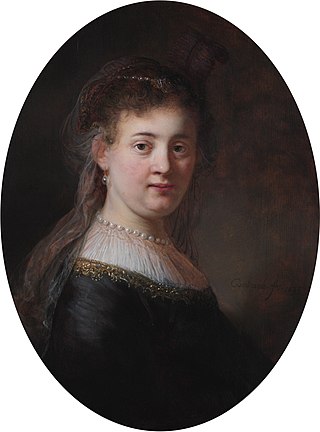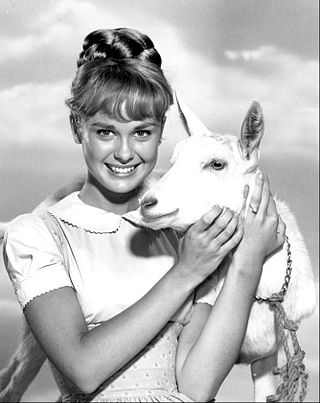
Chloe, also spelled Chloë, Chlöe, or Chloé, is a feminine name meaning "blooming" or "fertility" in Greek. The name ultimately derives, through Greek, from the Proto-Indo-European root *ǵʰelh₃-, which relates to the colors yellow and green. The common scientific prefix chloro- derives from the same Greek root. In Greek the word refers to the young, green foliage or shoots of plants in spring.

Gwyneth Patricia Dunwoody was a British Labour Party politician, who was a Member of Parliament (MP) for Exeter from 1966 to 1970, and then for Crewe from February 1974 to her death in 2008. She was a moderate socialist and had a reputation as a fiercely independent parliamentarian, described as "intelligent, obstinate, opinionated and hard-working".

Bianca is a feminine given name. It means "white" and is an Italian cognate of Blanche. It is known in the Anglosphere as a character in William Shakespeare's The Taming of the Shrew. It came to greater notice in the 1970s, due to public figures such as Bianca Jagger.

Belinda is a feminine given name of unknown origin, apparently coined from Italian bella, meaning "beautiful". Alternatively it may be derived from the Old High German name Betlinde, which possibly meant "bright serpent" or "bright linden tree".

Lucy is an English feminine given name derived from the Latin masculine given name Lucius with the meaning as of light. Alternative spellings are Luci, Luce, Lucie, Lucia, and Luzia.
Natasha is a name of Russian origin. It is the diminutive form of the Latin name Natalia, which means "born on Christmas Day".
Millie is a feminine given name, or diminutive form of various other given names, such as Emily, Millicent, Mildred, Camille, Camilla, Camila, Emilia, Maximillian, or sometimes Amelia.
Darcy, Darci or Darcey may refer to:
Thomasina,Thomasine, orThomasena is the feminine form of the given name Thomas, which means "twin". Thomasina is often shortened to Tamsin. Tamsin can be used as a name in itself; variants of Tamsin include Tamsyn, Tamzin, Tamsen, Tammi, Tamzie and Tamasin. The version "Tamsin" is especially popular in Cornwall and Wales. Along with Tamara it is the ancestor of "Tammy".

Saskia is a Dutch feminine given name of uncertain origin. It has been in use since the Middle Ages and is also in occasional use in the Anglosphere. One source word might be the Germanic sachs, meaning Saxon. Saskia van Uylenburgh, wife of the painter Rembrandt, is the best-known bearer of the name.
Brett is an Irish and English surname of Breton origin. It arrived in both countries via the Norman Invasion of England and Norman Invasion of Ireland respectively
Gwyneth is a Welsh feminine given name which derives from the kingdom of Gwynedd. It gained popularity, first in Wales and then across the English speaking world, in the 19th century. This may have been the result of author Ann Harriet Hughes, who adopted Gwyneth Vaughan as her pen name.
Vicky, Vick, Vickie or Vicki is a feminine given name, often a hypocorism of Victoria. The feminine name Vicky in Greece comes from the name Vasiliki.
Mia is a feminine given name.

Tammy is a feminine given name. It can be a short form of the names Tamsin, Thomasina, Thomasin, or Tamar, Tamara or other names starting with Tam. Tamsin, Thomasina, and Thomasin are feminine versions of the name Thomas, a Greek form of the Aramaic name Te'oma, meaning twin. Tamara is a Russian form of the Hebrew name Tamar, which means "palm tree". In Israel "Tami" (תמי) is commonly used as an abbreviation of the original Hebrew name.
Greig is a surname and given name. The surname is of Scottish origin and is derived from a shortened form of the personal name Gregory and Greg. As a given name, Greig is of English and Scottish origin. This name is a short form of the names Gregory or Gregor. In some cases it is derived from the surname of the same spelling. A variant form of the given name is Gregg.
Georgina is a given name and the feminine form of George, along with Georgia and Georgiana. It comes from the Greek word γεωργός, meaning "farmer".
Alex is a given name. It can refer to a shortened version of Alexander, Alexandra, or Alexis.
Dunwoody is a surname. Notable people with the surname include:
Kneafsey is a surname. Notable people with the surname include:






